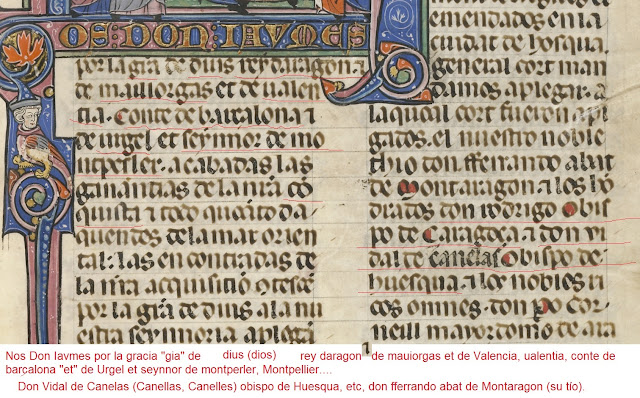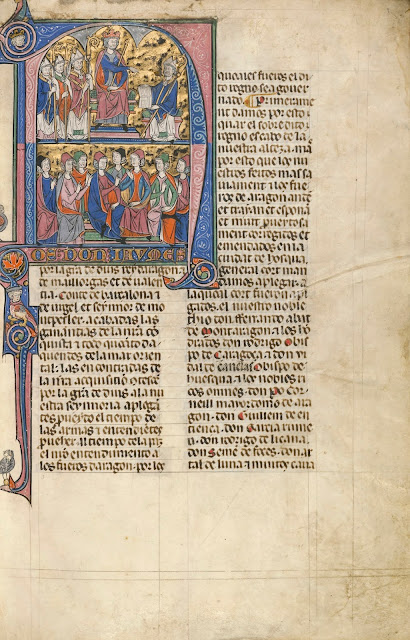Nos Don Iavmes por la gia gratia, gracia de dius, dios, rey daragon "et" de mauiorgas et de ualentia, conte de barçalona et de urgel et seynnor de montperler, Montpellier....
Guardeu esta página. Obríula en algún programa y busqueu Catalonia, Cathalunya o algo paregut.
In 1247, with the reconquest of Spain from the Moslems virtually complete, King James I of Aragon and Catalonia, JA JA JA !!
Spain, decided to establish a new systematic code of law for his kingdom. He entrusted the task to Vidal de Canellas, bishop of Huesca. The Getty Museum's manuscript, the only known copy of the law code still in existence, is a translation of Vidal de Canellas's Latin text into the vernacular Navarro-Aragonese language (in that language, the book is called Vidal Mayor in reference to the author). The manuscript's scribe was Michael Lupi de Çandiu, who identifies himself in an inscription and who also may have translated the text.
Not only is the text an important historical document but it is luxuriously illuminated with hundreds of historiated and decorated initials. Although written and illuminated between 1290 and 1310 in one of the major urban centers in northeastern Spain, the elegant style of the painting reveals an intimate link with contemporary French illumination. This stylistic connection demonstrates the increased movement of both artists and manuscripts from one European court to another.


